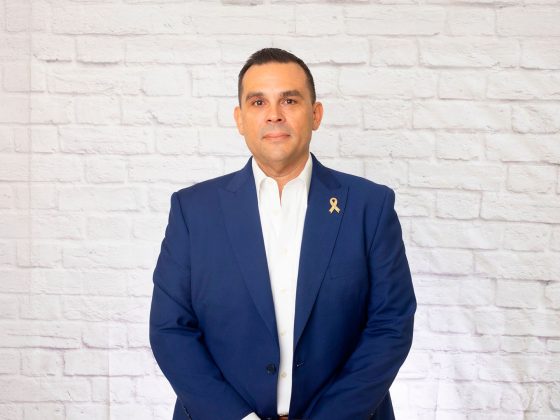In a world characterized by rapid change and increasing scrutiny, ethical leadership has never been more critical. Leaders today face complex dilemmas that test their integrity and decision-making, from navigating corporate social responsibility to addressing workforce challenges. Ethical leadership is not just about avoiding scandals or compliance breaches—it’s about creating a foundation of trust, accountability, and purpose that drives long-term success. This article explores the principles and practices of ethical leadership, offering insights for leaders striving to make the right choices in a complex world.
Defining Ethical Leadership
Ethical leadership is the practice of making decisions and leading in a way that aligns with moral principles and values. It involves prioritizing fairness, transparency, and the well-being of stakeholders, even when faced with difficult choices.
Ethical leaders understand that their actions set the tone for organizational culture. By consistently modeling integrity, they inspire trust and loyalty among employees, customers, and partners. For instance, Paul Polman, former CEO of Unilever, is celebrated for his commitment to sustainability and ethical business practices, demonstrating that purpose-driven leadership can drive both social impact and profitability.
The Business Case for Ethical Leadership
Ethical leadership is not just a moral imperative—it’s a strategic advantage. Organizations led by ethical leaders tend to enjoy:
- Stronger Employee Engagement: Employees are more motivated and loyal when they work for leaders who value fairness and transparency.
- Enhanced Reputation: Ethical behavior fosters trust among customers, investors, and the public, strengthening the organization’s brand.
- Long-Term Success: Ethical decision-making reduces risks associated with scandals, lawsuits, and regulatory violations.
For example, Patagonia’s commitment to environmental and social responsibility has earned it a loyal customer base and a competitive edge in the marketplace.
Core Principles of Ethical Leadership
- Integrity
Ethical leaders prioritize honesty and consistency. They do what they say they will do, fostering trust within their teams and beyond. - Fairness
Treating all stakeholders with respect and impartiality is central to ethical leadership. This includes ensuring equal opportunities for employees and addressing customer concerns with sincerity. - Accountability
Ethical leaders take responsibility for their actions and decisions, acknowledging mistakes and learning from them. - Empathy
Understanding and valuing the perspectives of others enables ethical leaders to make decisions that consider the broader impact on people and communities.
Navigating Ethical Dilemmas
Leaders often face situations where ethical principles may conflict with organizational goals or stakeholder expectations. Navigating these dilemmas requires a structured approach:
- Clarify Values and Priorities
Identify the core values that guide the organization and ensure decisions align with them. - Engage Stakeholders
Consult with diverse perspectives to understand the potential impact of decisions. - Evaluate Long-Term Consequences
Consider how actions will affect not just immediate outcomes but also the organization’s reputation and relationships over time. - Seek Guidance
When in doubt, consult mentors, colleagues, or ethics committees for advice and support.
The Role of Ethical Leadership in Organizational Culture
Ethical leaders are instrumental in shaping organizational culture. Their actions and decisions create a ripple effect, influencing how employees behave and how the organization is perceived.
- Lead by Example: Ethical leaders model the behavior they expect from others. This includes being transparent about decision-making processes and treating everyone with respect.
- Encourage Open Communication: Fostering a culture where employees feel safe to raise concerns or report misconduct is essential for maintaining ethical standards.
- Reward Ethical Behavior: Recognizing and rewarding employees who uphold organizational values reinforces a culture of integrity.
An example of this is Johnson & Johnson’s response to the 1982 Tylenol crisis. The company’s leadership prioritized customer safety over profits, setting a benchmark for ethical decision-making that continues to define its culture today.
Challenges to Ethical Leadership
Ethical leadership is not without its challenges. Common obstacles include:
- Pressure to Meet Short-Term Goals: Balancing ethical principles with performance expectations can be difficult.
- Ambiguity in Ethical Standards: Global organizations may face differing cultural norms and regulatory requirements.
- Resistance to Change: Implementing ethical practices may encounter pushback, especially if they challenge established ways of working.
To overcome these challenges, leaders must remain steadfast in their commitment to values, communicate their vision clearly, and build coalitions of support within the organization.
Case Study: Ethical Leadership at Starbucks
Starbucks has consistently demonstrated the importance of ethical leadership through initiatives like its College Achievement Plan and commitment to ethical sourcing. Under the leadership of Howard Schultz and, later, Kevin Johnson, the company has prioritized social impact alongside financial performance.
By investing in employee education, sustainable practices, and community engagement, Starbucks exemplifies how ethical leadership creates value for all stakeholders while building a resilient and respected brand.
Building Ethical Leadership Skills
Ethical leadership is a continuous journey. Leaders can develop and strengthen their skills by:
- Reflecting on Values: Regularly revisiting personal and organizational values ensures alignment with actions.
- Participating in Training: Ethics workshops and leadership programs provide tools and frameworks for navigating complex situations.
- Seeking Feedback: Soliciting input from peers and employees helps identify blind spots and areas for improvement.
Ethical leadership is the foundation of trust, resilience, and long-term success. In a complex and evolving world, leaders who prioritize integrity and accountability inspire confidence and loyalty, creating a positive impact that extends beyond their organizations.
By modeling ethical behavior, fostering a culture of transparency, and navigating dilemmas with care, today’s leaders can set a standard for future generations. Ethical leadership is not just about doing the right thing—it’s about leading with purpose and shaping a better world.
Image Source: Unsplash.com









